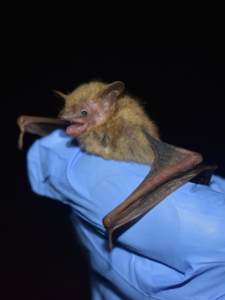 Winter in the South can bring about a sharp change in conditions that impact forests and their many inhabitants. However, new research from the University of Georgia Warnell School of Forestry and Natural Resources finds that, despite these seasonal shifts, forest management efforts are supporting healthy bat populations. As white nose syndrome, a deadly fungal disease, ravages bat populations, wildlife ecology and management professor Steven Castleberry wanted to ensure all other aspects of bat livelihood were being maintained. “There’s nothing really we can do about that disease. All we can do is continue to provide proper habitats,” Castleberry said. “As those populations recover, we ensure that those quality forests and habitats are still there.”.. Castleberry points out that most privately owned forests already provide a suitable balance for bats during the winter. Moving forward, forest managers should maintain this equilibrium rather than make drastic changes.
Winter in the South can bring about a sharp change in conditions that impact forests and their many inhabitants. However, new research from the University of Georgia Warnell School of Forestry and Natural Resources finds that, despite these seasonal shifts, forest management efforts are supporting healthy bat populations. As white nose syndrome, a deadly fungal disease, ravages bat populations, wildlife ecology and management professor Steven Castleberry wanted to ensure all other aspects of bat livelihood were being maintained. “There’s nothing really we can do about that disease. All we can do is continue to provide proper habitats,” Castleberry said. “As those populations recover, we ensure that those quality forests and habitats are still there.”.. Castleberry points out that most privately owned forests already provide a suitable balance for bats during the winter. Moving forward, forest managers should maintain this equilibrium rather than make drastic changes.